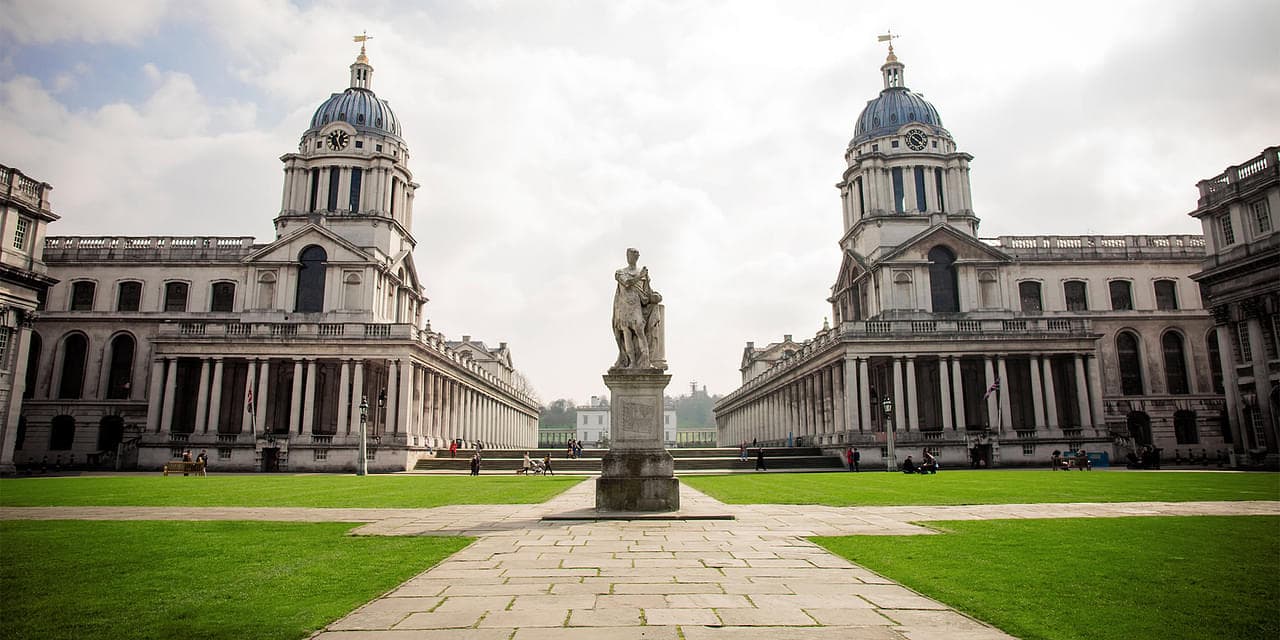

University of Greenwich Admissions 2026-27
London, United Kingdom
- Cost of Living£ 26,592
- Tuition Fee From£ 17,000
- Country Rank-
- Batch Strength14,196
- Global Diversity41%
- Gender Ratio44:56
Ranked 801 - 850 in the QS World University Rankings 2026, the University of Greenwich is a globally recognised institution offering various undergraduate and postgraduate programmes. An acceptance rate of around 59% provides strong opportunities for international students aiming for quality education in the UK.
University of Greenwich Admissions 2025 Highlights
- Intakes: Three main intakes: Spring (January), Summer (May), and Fall (September).
- Acceptance Rate: Approximately 59%.
- Entry Requirements:
- Undergraduate: Minimum 60–70% in Grade 12 (CBSE, ISC, or state boards); English proficiency (IELTS 6.0, TOEFL iBT 60+, PTE 46+); SAT (1200+) or ACT (24+) for some courses.
- Postgraduate: Bachelor’s degree with at least 55–65%; English proficiency (IELTS 6.5, TOEFL iBT 93, PTE 58); GRE (300+) or GMAT (550+) for select programs.
- Documents Required: Academic transcripts, personal statement, letters of recommendation, resume/CV, English test scores, and (for some courses) portfolio/interview.
- Application Portals: Undergraduate via UCAS; postgraduate directly through the university website.
University of Greenwich Application Deadlines 2025
|
Degree |
Application Deadline |
|
Undergraduate Courses |
3rd September 2025 (UCAS deadline) |
|
Postgraduate Courses |
15th October 2025 |
University of Greenwich Visa Requirements for International Students
- Visa Type: UK Student Route Visa.
- Requirements:
- Confirmation of Acceptance for Studies (CAS) from the university
- Proof of sufficient funds for tuition and living expenses.
- Valid passport.
- English language proficiency evidence (e.g., IELTS, TOEFL, PTE).
- Tuberculosis (TB) test results (for certain countries).
- Payment of the visa application fee and Immigration Health Surcharge.
- Application Timing: Apply after receiving the CAS, ideally several months before the course start date to allow for processing and travel arrangements.
University of Greenwich Application Process 2025
Step-by-Step Guide:
- Choose a Programme: Research undergraduate or postgraduate courses on the university’s website.
- Check Entry Requirements: Review academic and English language requirements for your chosen programme.
- Prepare Documents: Gather transcripts, personal statement, letters of recommendation, resume/CV, English test scores, and required portfolios or interviews.
- Apply:
- Undergraduate: Apply via UCAS (Universities and Colleges Admissions Service).
- Postgraduate: Apply directly through the University of Greenwich website or via a trusted agency partner.
- Pay Application Fee: As applicable (UCAS or direct).
- Submit Application: Ensure all documents are uploaded and the application is complete before the deadline.
- Receive Offer: If accepted, you will get an offer letter. Accept the offer and pay any required deposit.
- Apply for a Visa: Once you have the CAS, apply for your UK Student Route Visa.
- Prepare for Arrival: Arrange accommodation, travel, and attend orientation upon arrival in the UK.